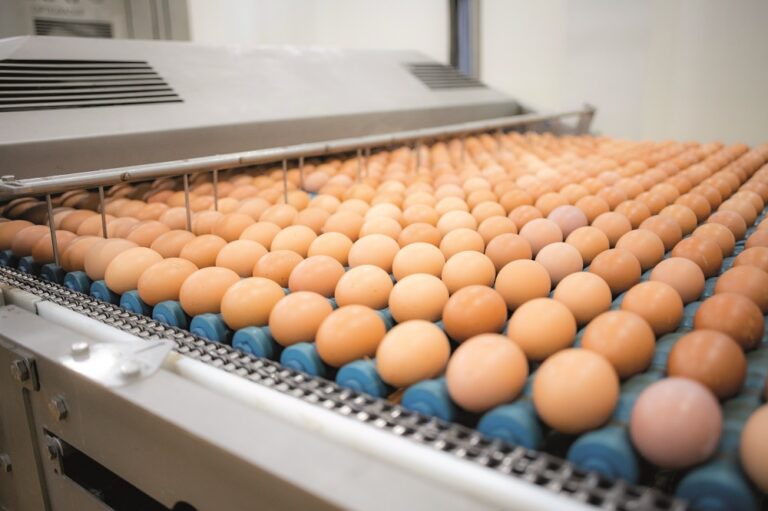A study by Synomics, the biological insights business, has identified a way to improve egg weights in laying hens by analysing variations within specific genes and then targeting birds with those gene variations for selected breeding.
The weight of an egg varies between 50 and 70g depending mainly on the age of the hen and on its genotype. Egg weight is a highly heritable trait, meaning much of the variance between hens is a result of genetics; it is also hugely important when it comes to poultry farmers’ profitability.
Synomics analysed data from more than 1,000 laying hens which each had more than 295,000 Single Nucleotide Polymorphisms (SNPs – pronounced ‘Snips’). SNPs influence how genes function and regulate gene traits, such as egg weight.
In this study, Synomics detected precisely 2,018 highly predictive SNPs which found 122 genes as potential targets for intervention. When it is considered that a hen could have upwards of 20,000 genes, being able to narrow down the scientists’ search to 122 that could hold the key to a heavier egg has an obvious impact on the speed of any subsequent research and development.
Peter Kristensen, chief executive of Synomics, said the business has developed the platform to enable animal and crop scientists and producers to get a better understanding of what drives key production traits and innovate accordingly: “We are giving scientists, farmers and food producers the ability to learn more about the animals they breed and the crops that they grow with insights they have not been previously able to liberate from the data they already hold.”


